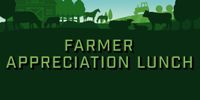With ever-progressing technology rapidly replacing older systems, farmers in the Portage area have access to equipment to more efficiently raise their crops. Emeline Farms owner Curtis Sims outlines what's available but at a pretty penny.
"Case in point, we're running the air seeder and a whole bunch of signals went funny in the computer, doing strange things. I came out from Portage and it turns out, one of the computers went on the air seeder's blockage monitor, which messed everything else up. You couldn't just turn it off. So that was only $1700 plus the technician, and there are eight of them. At least only one went! Quite frankly, machinery costs, whether they're for new, buying used, or repaired, are very big items on the farm. Inflation is quite real. It's far more dramatic than you would see in the consumer price index."
He explains grain prices were down quite low, but have recovered somewhat. Sims says four years ago, $7 wheat is more or less today's $9 wheat with inflation.
"The numbers look better, but you really haven't gained that much in your pocket since around the front-end of COVID, and wacky things happened then. Then the massive inflation ran up coming out of COVID. It just seemed that with the COVID shortages, everything just went straight up. What comes goes up, strangely enough, in farm machinery, doesn't seem to go down."
With gas tax and the efforts to reach net-zero emissions, grain drying is costly.
"We built a new grain dryer last year and did a fair bit of custom work, as it turned out. In any event, we paid an awful lot of money in carbon tax that we'll never see again. That discussion could get political. The government stalled on the Private Member's Bill and they don't want to make any allowance. For us, of course, the corn price is set internationally and they don't care if our costs are higher or not. It's the international price - take it or leave it. So, the carbon tax comes right out of our pockets without really changing very much."
Sims says farm groups, such as the Western Canadian Wheat Growers, have been approaching the government.
"Conservative politicians are aware, as well. They've been very supportive of in getting this carbon tax off some of the farm activities. It's not on diesel fuel for tractors, but it is on grain drying, and, I gather, such things as heating chicken barns, for example. That's real money and it's not going to change the way you operate, really. The fuel is already expensive. We're doing everything we can to reduce fuel consumption, anyway. All that this does is just raise our costs some more."
He outlines his perspective on the battle they're currently dealing with.
"The point is that Trudeau's got himself dug in so hard on this that trying to oppose it, and trying to do all kinds of funny things that are not very becoming to himself, or to our democratic institutions either, to try and obfuscate, complicate, and delay what was clearly the will of Parliament. Get on with it, already! Quit trying to play your political, partisan games. In a case like this, it's pretty clear what the situation is for the carbon tax part of things."
Sims notes tax costs are not quite overwhelming, but real, nevertheless.
"You have to be cost-conscious on the farm in everything you do. You have to be a little careful where you spend the money. Spend it wisely, and don't be afraid to invest even significant amounts, if it looks good. But at the same time, unfair expenses, such as that, hurt us and produce no good positive results. That's my impression of the carbon tax, anyway. I suppose I could include some other government regulations and taxes, and things in that discussion, as well."
All in all, he notes you just have to do your best.
"Just hope that it still all works out on the other end, one way or another. But it's hidden in there and it's real. It surfaces at the end of the year a little bit. I don't want to overstate the case, but it's frustrating in that it's unfair and it doesn't produce any results, in this case."
Sims adds another one of the increased costs of late is with interest rates.
"Everybody is aware of that; if they owe money on a car, or whatever it might be. But on the farm, of course, you're dealing in fairly large numbers. If you've got land loans, certainly. So percentage interest, let alone 3 or 4 per cent rise, is quite real. It makes a real difference. Plus, of course, any machinery loans. You could make a B-Class movie out of the old operating loan, I think. It gets up there at this time of year when you're seeding, buying fertilizer, and fixing tractors. At 3 per cent, you could almost half ignore it, but not now. It creeps in there and it's something of significance. That's one more of those items that sneak in on you."
 Curtis Sims
Curtis SimsHe says if you're part of a long-established operation, that's reasonably balanced out. Sims describes it as real, and not so much dramatic.
"For younger ones really trying to get going, it is a real challenge."
Sims adds he always watches the prices of grain.
"Sometimes, you call it right and sometimes you don't. Whenever you sell grain, of course, it goes up the next day; that sort of thing. You do have to watch your dollars. Things were pretty strong for a couple of years here with really high prices, and you could charge out and just step ahead, considering it should work out alright. But you have to be a little more cautious now with the things that you have to pay. 'Do we really need a new whatever? Maybe we could do a little more fixing. Keep it going for another year instead.' Some farmers are buying new stuff, and more power to them. But even then, maybe they're buying one less item or something."
He explains that when things are going good, farmers generally feel more free to make investments, especially when rates are 7 per cent. He notes that you feel a little more confident and hope the prices of grain hold long enough to make your return on it
"Then sometimes, they do. and sometimes they don't. You then have to tighten up a little harder to make sure that this thing rolls through to the next."
Fertilizer prices went through the roof during COVID, Sims adds.
"It was vicious and the price of grain hadn't really responded much. So. there was a bad spot there. The price of nitrogen fertilizer has actually come down reasonably well; a lot down from what it was. Phosphate hasn't moved much. The phosphate manufacturers' cost structure, if not their pricing structure, hasn't really changed that much. So, it's staying up there. And potash is somewhere in between. I could go on about potash activities in Saskatchewan and so on, but maybe I won't today."











